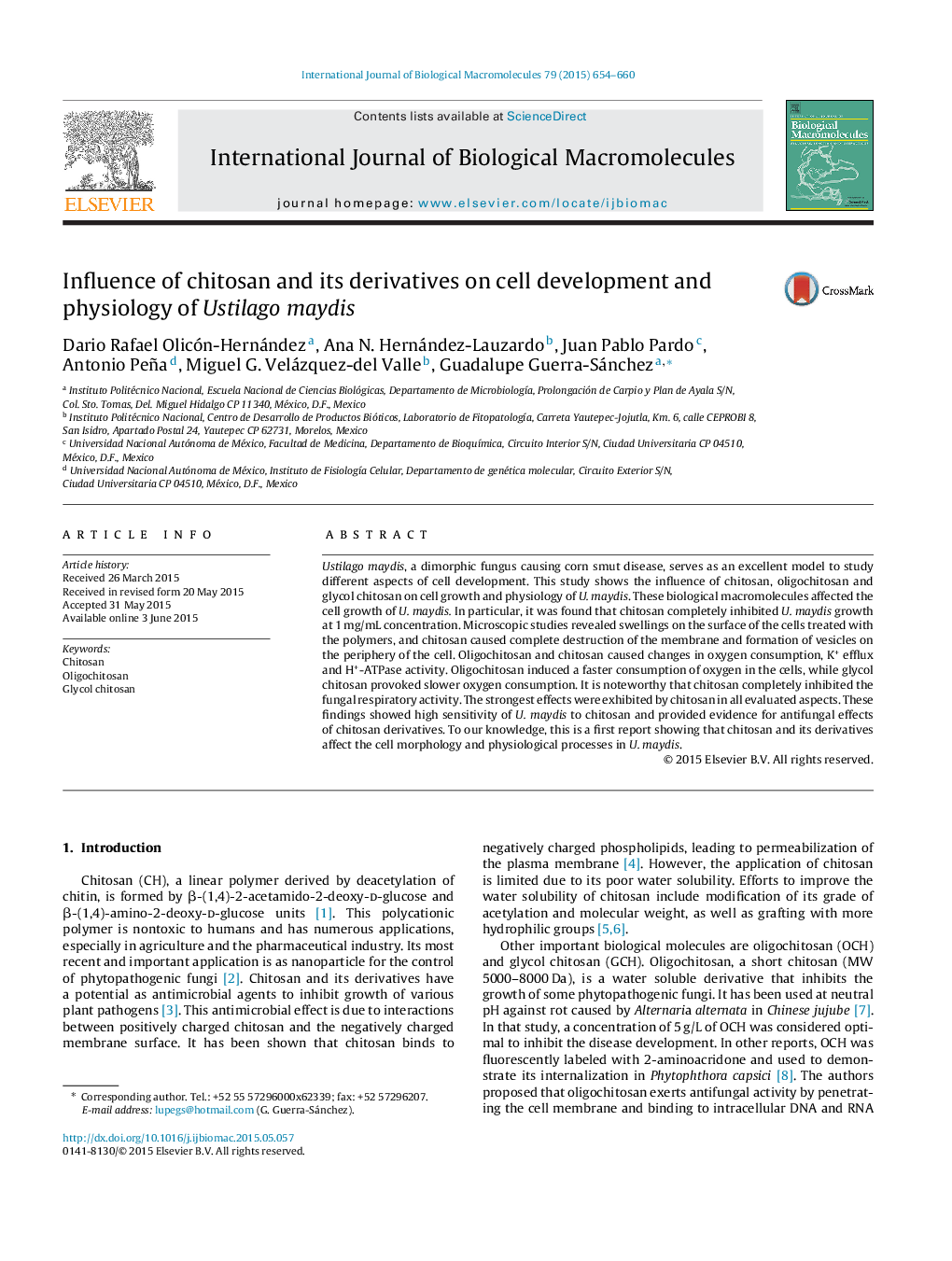| Article ID | Journal | Published Year | Pages | File Type |
|---|---|---|---|---|
| 8331289 | International Journal of Biological Macromolecules | 2015 | 7 Pages |
Abstract
Ustilago maydis, a dimorphic fungus causing corn smut disease, serves as an excellent model to study different aspects of cell development. This study shows the influence of chitosan, oligochitosan and glycol chitosan on cell growth and physiology of U. maydis. These biological macromolecules affected the cell growth of U. maydis. In particular, it was found that chitosan completely inhibited U. maydis growth at 1Â mg/mL concentration. Microscopic studies revealed swellings on the surface of the cells treated with the polymers, and chitosan caused complete destruction of the membrane and formation of vesicles on the periphery of the cell. Oligochitosan and chitosan caused changes in oxygen consumption, K+ efflux and H+-ATPase activity. Oligochitosan induced a faster consumption of oxygen in the cells, while glycol chitosan provoked slower oxygen consumption. It is noteworthy that chitosan completely inhibited the fungal respiratory activity. The strongest effects were exhibited by chitosan in all evaluated aspects. These findings showed high sensitivity of U. maydis to chitosan and provided evidence for antifungal effects of chitosan derivatives. To our knowledge, this is a first report showing that chitosan and its derivatives affect the cell morphology and physiological processes in U. maydis.
Keywords
Related Topics
Life Sciences
Biochemistry, Genetics and Molecular Biology
Biochemistry
Authors
Dario Rafael Olicón-Hernández, Ana N. Hernández-Lauzardo, Juan Pablo Pardo, Antonio Peña, Miguel G. Velázquez-del Valle, Guadalupe Guerra-Sánchez,
